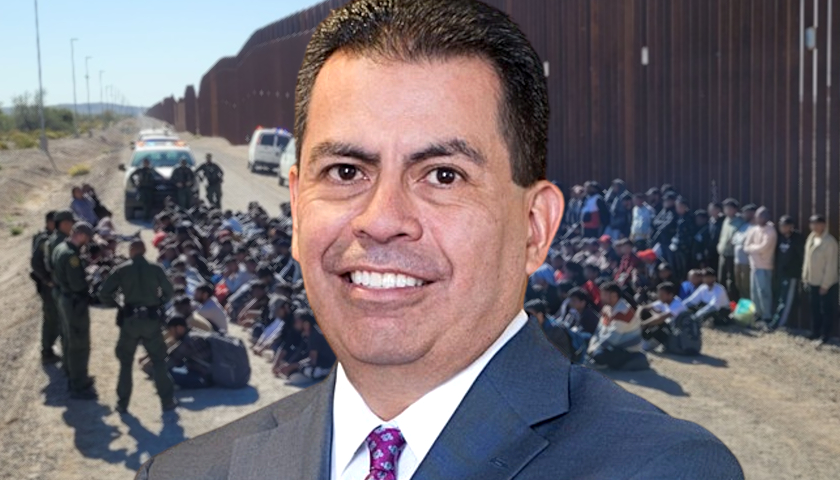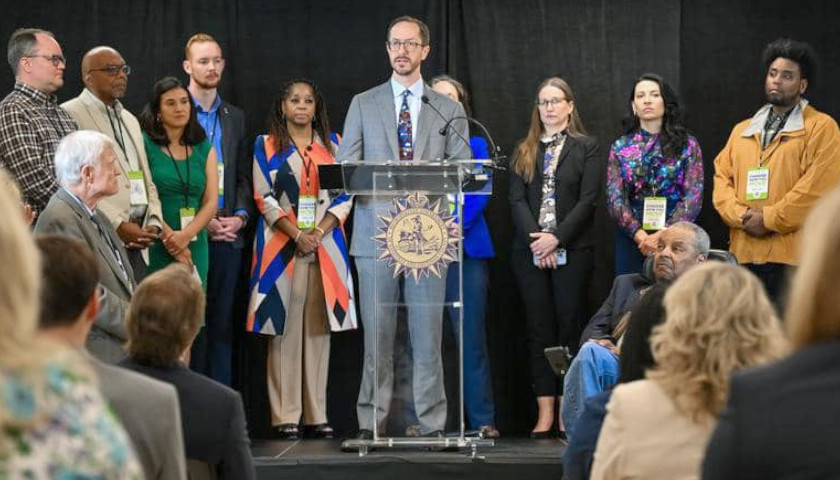The TN Immigrant and Refugee Rights Coalition (TIRRC) is among the most aggressive opponents to the legislature’s constitutional challenge to the federal refugee resettlement program and to current and past legislative efforts to reduce illegal immigration to Tennessee. However, TIRRC takes credit for “helping to pass a bill to increase statewide funding for English language learner (ELL) programs in public schools by $30 million.”
As the legal and illegal immigrant population in Tennessee has grown, so has the cost to state and local taxpayers to teach non-English speaking students in the state’s public schools.
State funding for English Language Learner (ELL) services in Tennessee public schools has increased annually bringing the 2012 $49 million up to $65.8 million in fiscal year 2016. The required local share has increased from $21 million to $28.2 million during the same time.
In September 2016, Metro Nashville Public Schools sued the state wanting more money for ELL services, alleging that the state did not meet the Basic Education Program funding formula and as such, state funding was inadequate to pay for the proper ratio of students to teachers and translators.
Tennessee Department of Education spokeswoman Sara Gast wrote that the state had provided $220 million in new funding, including $14 million in new funds for English language learners. “This increased ELL funding benefits MNPS more than any other school district in the state.”
Despite MNPS’ alleged need for more ELL funding, in 2015, it started teaching beginning and heritage Arabic classes in six South Nashville schools and hired several Arabic language teachers:
“These schools were chosen based on a detailed audit of students’ home languages. Each of these schools has dozens – and in some cases hundreds – of students who identify Arabic as their primary language. That is why two different courses will be offered: beginning Arabic and heritage Arabic.
Beginning Arabic is designed for students who are unfamiliar with the language and are starting from scratch. Heritage Arabic is designed for native speakers as a way to enhance their language skills and possibly even learn to read and write in Arabic for the first time.”
As stated in the MNPS lawsuit, “Metro Nashville public schools has the highest number of ELL students in the State of Tennessee,” and further:
“38. Approximately 25% of the Metro Nashville Public Schools students come from a non-English language background.
39. Students in Metro Nashville Public Schools speak over 120 different languages.
40. The most common native languages are Spanish (over 16,000 students), Arabic (over 3,000 students), Kurdish (over 1,000 students), Somali (approximately 800 students), and Vietnamese (approximately 500 students).
41. Students in Metro Nashville Public Schools come from approximately 145 different countries. Over 900 students are refugees.
42. ELL students require additional resources and specialized teachers in order to make their education meaningful and allow them to acquire general knowledge, develop the powers of reasoning and judgment, and prepare them intellectually for a mature life. The ELL students must be provided a fully funded “excellent education program” by the State. Small Schools II at 738.
44. Additional education funding for Metro Nashville Public Schools would likely be used to provide additional services for ELL students (such as additional after school tutoring, professional development opportunities for ELL teachers, family and community literacy nights) and for all students (such as additional reading interventionists, literacy summer school, and textbooks).”
Catholic Charities of Tennessee, a federally contracted refugee resettlement agency, started bringing Kurdish refugees to Nashville in 1976. In 2001, the U.S. Office of Refugee Resettlement’s pilot program called “Building the New American Community” targeted three non-traditional gateway communities for refugee resettlement, including Nashville.
In addition, between 2013 and 2016, over 4,000 Unaccompanied Alien Children, (those under age 18 who cross the border illegally without an adult), have been delivered to Tennessee.
Metro Schools has appealed the lower court’s denial of their requested relief.
Regardless, Governor Haslam in his 2017 State of the State address announced his intention to fully fund the BEP, saying “it’s one of the largest education funding increases in the state’s history” and would include $22 million more for ELL students.









We only want the communism that gives us free stuff, we don’t want the part where we have to pay money and swear our souls to the collective!
I suggest that these foreign languages be dropped. The comment on teaching “Arabic” to Tennessee students in public schools so they could communicate as leaders “possibly read and write Arabic for the first time” ????? HUH???? This is America and we need “ENGLISH” taught in the public schools. If people want to take “extra curricular foreign languages” they can do it on their own nickel.
Suggestion to Legislators – This BEP program needs to be “reaccessed”. Seems to me this program tries to PUSH INTERNATIONALISM. Common, God-fearing Tennesseans are not for this stuff. I think the Common terminology would be “AMERICA, FIRST.” I think that was the common sentiment at Good President Trump’s meeting on Wednesday.
For God & Country
If they are not citizens, let the pay for their own education. We should not be supporting illegals who want a free ride.